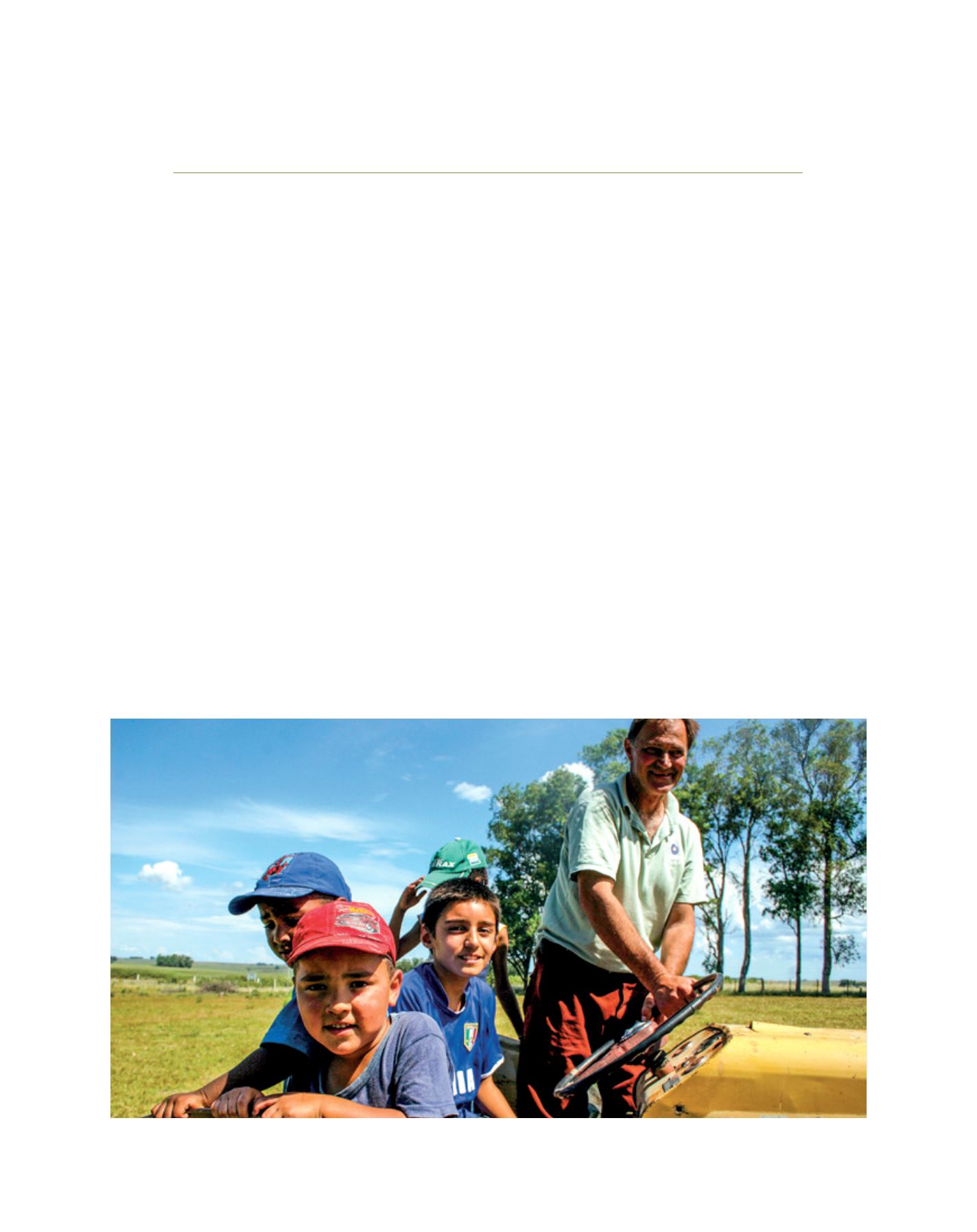

[
] 205
Empowering Uruguay’s family farmers
José Olascuaga, General Director, General Directorate for Rural Development,
Ministry of Farming, Agriculture and Fisheries, Uruguay
I
t was a pleasant August afternoon in the south of
Uruguay where, by the end of winter, the days are
sunny and warm but a little windy. Don Oscar had
begun his working day early in the morning. He woke
up at 4 a.m. and, after drinking mate
1
beside the stove,
he had milked the cows with his eldest son, Julio. Don
Oscar’s wife, Mariana, had fed the calves and washed the
entire milking parlour.
That day, after taking the cattle to the grassland, Don Oscar
and Julio worked to prepare a piece of land for the next corn
crop. In the morning a tanker from Conaprole, the National
Cooperative of Dairy Farmers,
2
had picked up the milk later
than usual while Carmencita, the youngest member of the
family, left for school on her bike, carrying her ceibalita
3
laptop in the school bag Mariana had lovingly prepared for
her. The rural school, attended by 15 children, is 2 kilometres
away from Carmencita’s home on a secondary road. When she
was younger her mother had to take her there.
It has been 25 years since Don Oscar and his family took on
a farm of 150 hectares that belongs to the Instituto Nacional de
Colonización,
4
a public institute that provides land to family
farmers in Uruguay. Even though they have overcome many
issues, hard work, accomplishment and discipline remain
constant in their lives. Dairy production, the main source of
family income, requires the collaboration of the whole family.
This is real team work that has to be done every single day
of the year, no matter how cold it is in the winter or how hot
the summer days become. Mariana is a key person in this
team. She helps Don Oscar with planning the general tasks of
the farm, she does the housework and she breeds the calves
and poultry. Julio wants to continue his life in the country
and has recently graduated as a Farming Technician from the
Universidad del Trabajo del Uruguay (Public Technological
University of Uruguay). This has enabled the family to incor-
porate modern farming technologies more easily, and they
have started new complementary activities such as horticul-
ture and bee keeping.
On this particular afternoon, Don Oscar and Julio attended
the birth of a heifer which happily developed without any
complications, leaving both the calf and its mother in good
health. After that, while they were listening to a football match
Governmental support and educational opportunities allow farming families to incorporate modern farming technologies and complementary activities
Image: Ministry of Farming, Agriculture & Fisheries, Uruguay
D
eep
R
oots
















